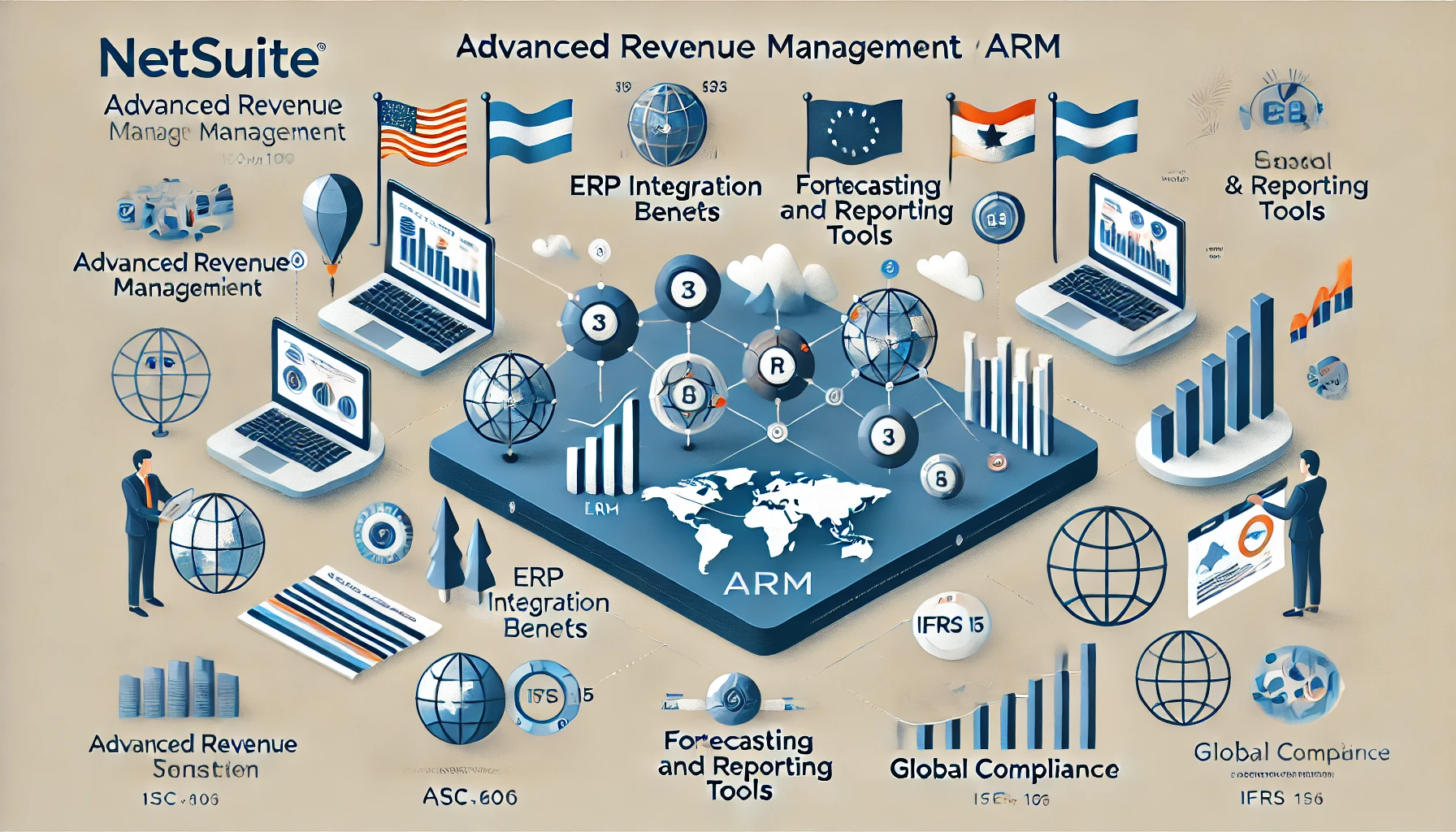Table of Contents
ToggleUnlock the Power of NetSuite E-Invoicing: Boost Efficiency and Cash Flow
Benefits of E-Invoicing with NetSuite
E-invoicing with NetSuite has several business advantages, including reduced expenses, fewer mistakes, and better cash flow. The fact that e-invoicing enables more extensive automation of accounting and payment procedures for both suppliers and customers is the source of many of these advantages. Advantages include:
- Productivity– E-invoicing significantly lessens the amount of physical labour suppliers must perform. ERP systems automatically generate and deliver e-invoices when sales transactions are logged or products are shipped to clients, saving employees the time and effort of entering data. As a result, employees can now devote more time to higher-level tasks.
- Fewer mistakes- Errors in data entry are eliminated since transaction data is automatically sent to electronic invoicing. Additionally, this lessens the possibility of tiresome and time-consuming payment disputes.
- Automated validation and matching- To guarantee that the invoice precisely matches what was bought and received, e-invoicing makes it easier for customers to automate the process of verifying invoices against shipping and purchasing documentation. This may save a great deal of work. Reconciling the monies received with the initial sales transactions is easier for suppliers.
- Lower expense- Higher precision and less manual labor result into lower costs for suppliers and customers.
- Enhanced cash flow- E-invoicing helps improve suppliers’ cash flow by significantly reducing payment cycles. Automation makes it possible for suppliers to send bills on time, which may speed up payment times for consumers who can verify the invoices they get rapidly.
- Discounts from suppliers- Many vendors provide discounts for prompt payment; nevertheless, many also charge late fees. Customers can benefit from early payment incentives from suppliers and pay faster using e-invoicing.
- Less influence on the environment- E-invoicing lessens the environmental impact of invoicing by doing away with paper, ink, and envelopes.

How does NetSuite simplify E-Invoicing?
Businesses may quickly and simply create electronic invoices for improved tracking, faster payment, and more accuracy by using NetSuite, which automates manual accounts receivable operations. Invoices from sales orders are automatically generated by NetSuite accounts receivable when they are fulfilled, doing away with the need for laborious, error-prone manual data entry. Finance staff can offer a variety of payment choices, send invoices via email, and modify invoice layouts to suit specific customer demands. When a customer places several orders in a single billing month, NetSuite automatically generates a single, combined invoice. The relevant amount is then applied to each order once payment is received.
Businesses can process supplier invoices automatically with the use of NetSuite invoice management. Following electronic entry or receipt of a purchase order, bill, and receipt, NetSuite performs a three-way match to correlate the documents for approval. In order to maximize cash flow, the accounts payable staff can then determine which bills to pay when.
For many organizations, e-invoicing can simplify what has historically been a labour-intensive procedure. Businesses can increase operational effectiveness, lower errors, and enhance cash flow by automating the preparation and processing of invoices.
What are the pre-requirements for installing NetSuite’s E-Invoicing?
The ability of an account to access the Electronic Invoicing functionalities is managed by the NetSuite SuiteApps License Client. The NetSuite SuiteApps License Client connects to the NetSuite SuiteApps License Server during installation to retrieve current license data.
- You need to finish the following tasks before you may install the Electronic Invoicing Suite App:
Install the license client for NetSuite SuiteApps (Bundle ID: 116144).
Installing the Electronic Invoicing SuiteApp (Bundle ID: 436209) requires first installing the NetSuite SuiteApps License Client (Bundle ID: 116144).
The ability of an account to access the Electronic Invoicing functionalities is managed by the NetSuite SuiteApps License Client. The NetSuite SuiteApps License Client connects to the NetSuite SuiteApps License Server during installation in order to retrieve current license data.
You can utilize the Electronic Invoicing functionality for several countries if the account has an active license. You can still use the Electronic Invoicing SuiteApp for free if your account does not have an active license, but you will only be able to create and transmit electronic documents to one nation, as well as convert those electronic documents into vendor bills when they are received from that same country.
Your OneWorld accounts cannot create, send, or convert received e-documents into vendor invoices if the NetSuite SuiteApps License Client is not installed.
Your accounts without OneWorld can generate, certify, or send all outgoing e-documents and turn incoming e-documents into invoices if you have installed the NetSuite SuiteApps License Client.

- Ascertain whether a return email address is included on the Company Information page.
- Custom Records
- Custom Transactions.
- Advanced PDF/HTML Templates
- Client SuiteScript
- Server SuiteScript
- Web Services
- Ensure that there is a return email address on the Company Information page.
Installing NetSuite’s E-Invoicing
- Refer to Prerequisites for Using Electronic Invoicing to confirm that all requirements are satisfied.
- Navigate to Customization > SuiteBundler > Search & Install Bundles.
- Type the bundle ID or name (e.g., bundle ID: 436209, bundle name: Electronic Invoicing) in the Keywords box.
- Click Search.
- Select the Electronic Invoicing SuiteApp link. Click Install from the Bundle Details page.



